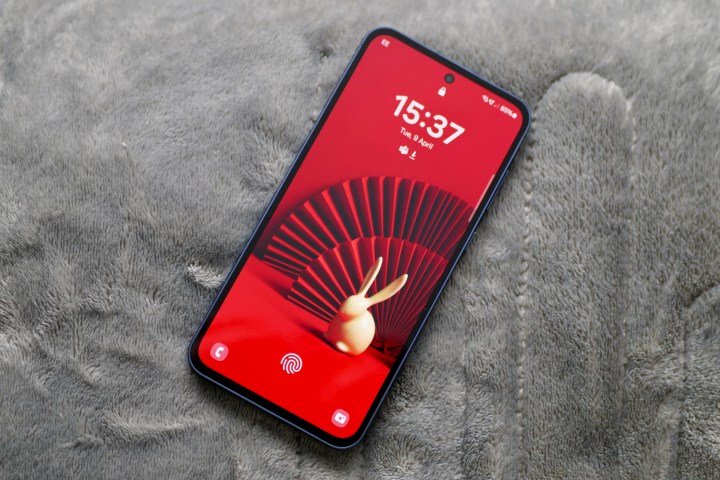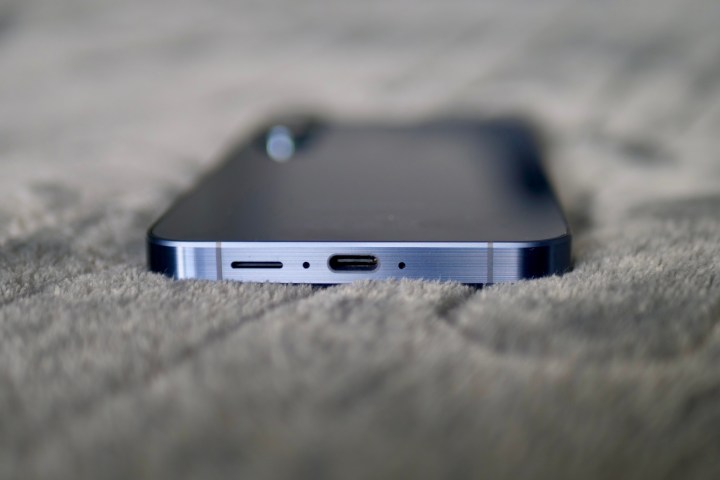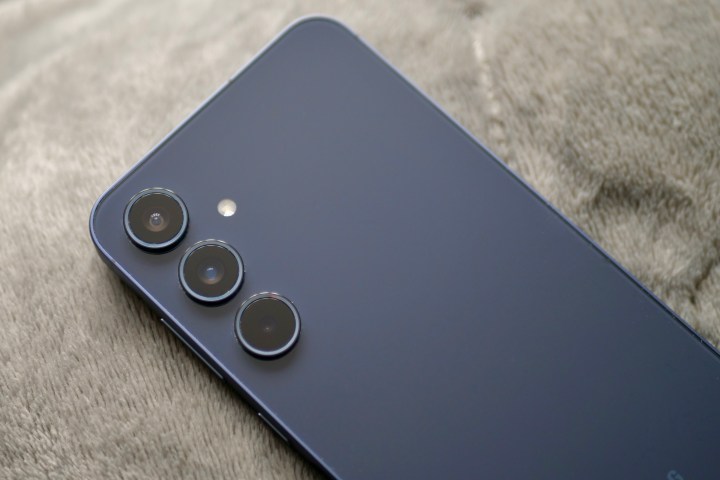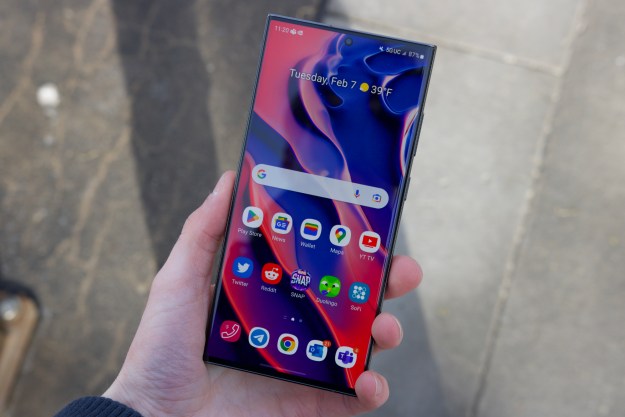
The Galaxy A55 is Samsung’s newest midrange, affordable smartphone, built as an alternative for those who don’t want to splash out on the Galaxy S24. But that does not mean it doesn’t feel special. Samsung has updated the design in a few subtle ways that make the Galaxy A55 look and feel desirable from the moment you pick it up.
I’m getting ready to give the Galaxy A55 a full review, but in the meantime, here are my very early impressions of Samsung’s latest affordable phone. As I hinted at, it’s definitely looking good, but unfortunately, a few concerns are also creeping in — which I hope will quickly disappear.
A new, sharp shape

The Galaxy A55 has a metal frame with flat sides, much like the Galaxy S24, but it takes the design a step further by adding a brushed effect, and I think it looks great. Moreover, it has added more shape to the frame by raising the section around the buttons ever so slightly and then removing the brushed effect. This combination looks fantastic, and the blue color of my review model shimmers and glints in the light, so it manages to make the Galaxy A55 look more modern and mature than the Galaxy A54.
On the back is Gorilla Glass Victus+, and it’s completely flat. The edge of the glass isn’t curved, and it meets the frame at a sharp angle, making the Galaxy A55 uncomfortable to hold. I’m not sure what the obsession is with entirely ignoring ergonomics, as phones don’t have to be so harsh on your palms, even with a squared-off shape. I don’t really like using a case, but this is one time where I think it’d be worth it — just to make the phone more comfortable to grip.

A case may also help keep the highly reflective glass rear panel free of smudges. It doesn’t seem awful at attracting muck, but I have wiped it down quite a lot for the photos despite it only being in my possession for a few hours. It comes in four colors, all prefixed by the word “awesome.” The phone in our photos is in Awesome Navy, plus you can get Awesome Lilac, Awesome Lemon, and Awesome Ice Blue. Awesome, indeed.
The Galaxy A55’s specifications

On the front is a 6.6-inch Super AMOLED screen with a 2340 x 1080 pixel resolution, a 120Hz refresh rate, and some sizable bezels around the edge. Many will dislike this, just as they did with the Galaxy A54, but I’m just going to say it — I don’t notice them very much at all. Yes, the bezels are thicker than a Galaxy S24’s bezels, but they look far worse in photos and with certain wallpapers than they do in person. It’s a dark border around the screen, but there’s still a lot of screen on the Galaxy A55, and the bezels don’t really detract from everyday use.
I’m writing this on my first day with the Galaxy A55, so I can’t assess the 5,000mAh battery’s performance yet, nor can I really comment on the new Samsung-made Exynos 1480 processor. That said, it hasn’t started out by impressing me much. Smartphones always work hard on the first few days as apps are optimized and data organized in the background, so I’m hopeful the few stutters and slowness I have noticed will gradually disappear.

I’m also hoping the in-display fingerprint sensor improves. The Galaxy A-series has always suffered from substandard fingerprint sensors, where multiple tries are often required before they work. Unfortunately, the Galaxy A55’s fingerprint sensor hasn’t convinced me that things have changed on the latest model, but again, it’s still in the early days. The phone has Android 14 with Samsung’s One UI 6.1 installed, just like the Galaxy S24. However, none of the Galaxy AI tools are here.
The Galaxy A55 has a lot of what has always made the Galaxy A series such good value. It has 128GB of storage space plus a MicroSD card slot, 5G connectivity, NFC, all of Samsung’s Knox security features, a long software update commitment covering four OS updates and five years of security updates, and an IP67 water and dust resistance rating. On paper, the cameras haven’t changed much compared to the Galaxy A54, but there are sensor alterations that will make them interesting to test.
Samsung’s weird release decision

I liked the Galaxy A54 because it was a reasonably priced smartphone available in the U.S., the U.K., and other regions. It became an easy recommendation. However, Samsung has decided not to sell the Galaxy A55 in the U.S. at the moment and will instead only release the Galaxy A35. This may change in the future, though it’s not guaranteed to.
It means anyone looking for a high-quality new smartphone for around $500 has one less choice this year, but for once you’re still faced with some excellent alternatives. The OnePlus 12R, the Google Pixel 7a (and soon-to-be Pixel 8a), and the Nothing Phone 2 are all great options. Plus, at the time of writing, the flip-style Motorola Razr (2023) is available for $500, and it’s a great phone we love. It’s a surprise that Samsung didn’t want to compete with all these by using its own, previously very desirable, midrange smartphone.

In the U.K., the Samsung Galaxy A55 starts at 439 British pounds, which is around $556, and it’s available to buy now. The review process has well and truly begun on the Galaxy A55 here, and while I like the direction Samsung has taken with the A-series over the last few years and how it gets the fundamentals — big screen, big battery, software updates, and durability — right, it doesn’t seem to have addressed some of the ongoing complaints about the model.
I hope I’m wrong and that it will settle down into everyday life after I’ve lived with it for a while. If it does, the Galaxy A55 will be another reasonably priced winner. I want it to be a serious disappointment Samsung has decided not to launch it in the U.S., and not shoulder-shrugging indifference that Samsung has held it back from the U.S. at this time.
Editors' Recommendations
- Samsung’s newest Android tablet is a perfect iPad alternative
- Have a Samsung Galaxy S23? Don’t update your phone to One UI 6.1
- 5 things I want to see in the Samsung Galaxy S25 Ultra
- I just got one of 2024’s most interesting phones. Here are 5 things I can’t wait to try
- Samsung’s next folding phone could be cheaper than we thought




